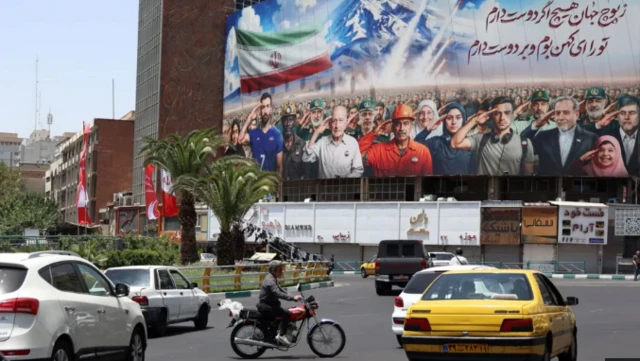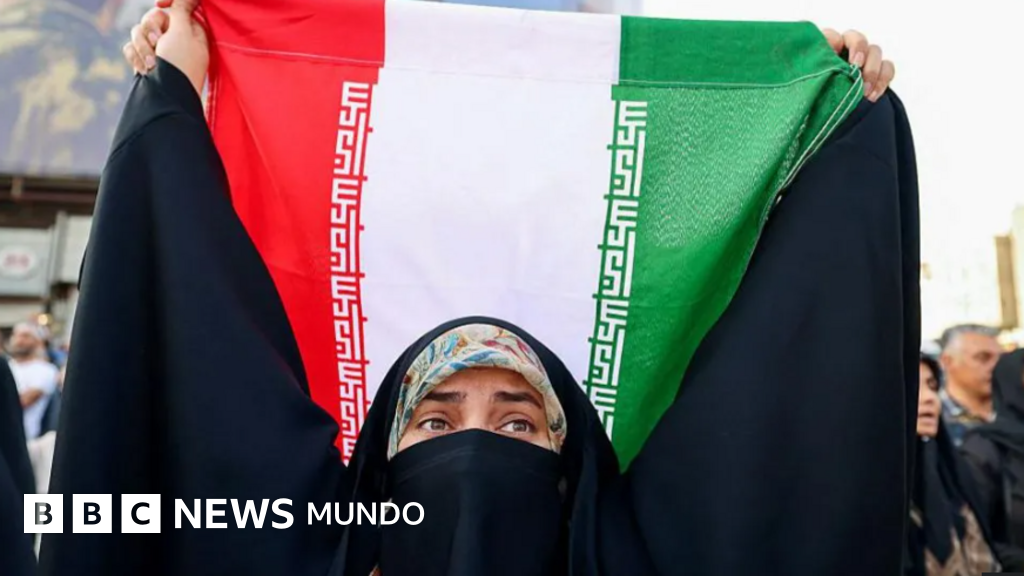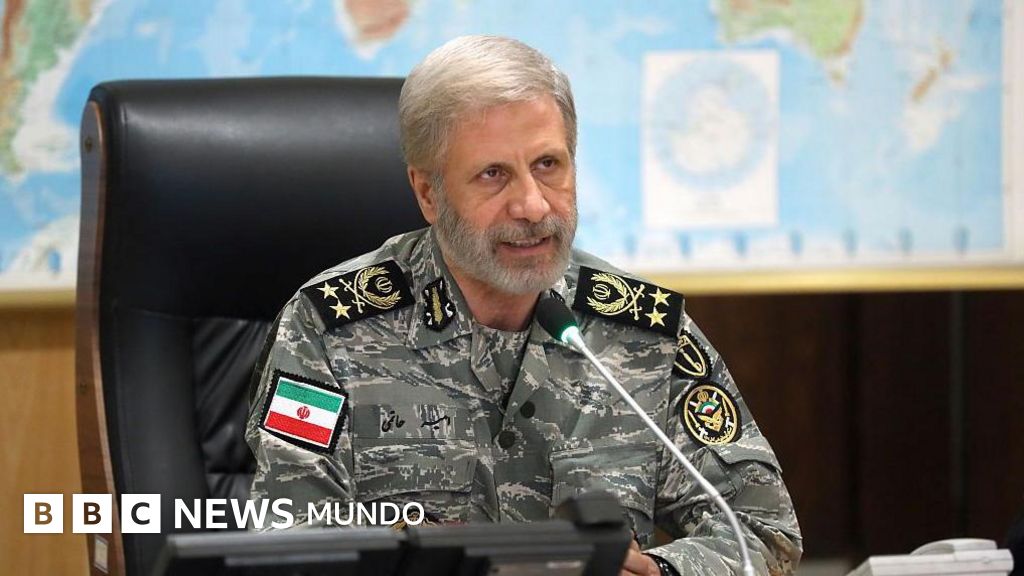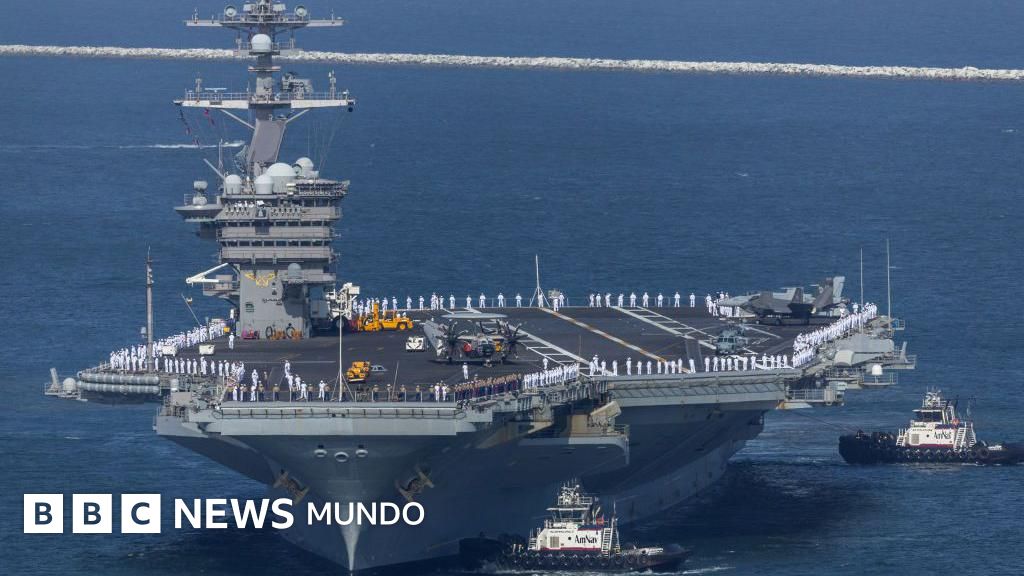Image source, Getty Images
-
- Author, David Gritten
- Author’s title, BBC News
“My days and my nights are the same. I feel paralyzed. I look at the ceiling day and night.”
“I wonder what will happen next, and constantly surprises us.”
Shahla – whose name we have changed for its protection – is among the Iranians who contacted the Persian BBC service to express their fear and go after the United States bombarded three of their country’s main nuclear facilities on Saturday night.
The US president, Donald Trump, said that the facilities of Isfahán, Natanz and Fordo were destroyed and informed Iranian leaders who now had the option to choose between peace and tragedy.
Iranian Foreign Minister Abbas Araghchi said that the United States had crossed a red line and warned that it would have lasting consequences.
The attacks occurred just over a week after Israel launched a large -scale air campaign against Iran, whose objective was to eliminate what he called existential threats of the country’s nuclear and ballistic missile programs.
The Iranian Ministry of Health states that at least 430 people have died so far, although a human rights group estimates that the death toll is double.
Iran responded by throwing missiles against Israeli cities, killing 24 people, according to Israeli authorities.
The Iranian government has restricted Internet access during the last week, which limits the flow of information about what happens in the field and hinders communication between families.
Mehri (whose name is also fictional) managed, however, send an audio message to the Persian BBC service in which he explained how US attacks had left her dismayed and angry.
“I don’t think I felt this level of pain and anger for anything in my life,” he said. “But, in a way, it also gives me a strange feeling of clarity. It reminds me that I am connected with something beyond myself.”
“This war – Iran’s war – is essentially a conflict between three individuals. Three leaders, from three countries, moved by their own ideologies,” he added, apparently referring to Donald Trump, to the Israeli prime minister, Benjamín Netanyahu, and the supreme leader of Iran, the Ayatolá Ali Jamenei.
“I get furious when I hear them mention names like Isfahán or declare suddenly: ‘We have taken control of the skies of Iran'”. For me, these are not just words, they are something sacred.
Homayoun, a man from Maku’s northwestern region, was challenging at Trump’s warning that they would face more attacks if he did not accept peace.
“Yes, we are going through difficult moments, but we will support our country until the end. And if necessary, we will give life for our country, for our honor,” he said.
“My son will be born in a few days”
Trump warned Iran on Saturday that any retaliation against the United States “will face a much greater force.”
At a press conference in Türkiye on Sunday, Minister Araghchi said that Iran reserved “all options to defend his security, his interests and his people.” He also said that the United States was “fully responsible for the consequences of its actions.”

Image source, EPA
The body of the Islamic Revolutionary Guard (CGRI) pointed to the US bases in the Middle East.
Before Israel launched his air campaign, Iranian defense minister had threatened to attack all US bases “within our reach” if the United States participated in any attack against its nuclear program.
Some, with a more uncompromising position, also asked that the US Navy ships be attacked in the Gulf and the closure of the Ormuz Strait, one of the most important maritime routes in the world.
Another Iranian citizen told the Persian BBC that he hoped that he was “the high point of the war escalation, and from there, the situation began to descale.
“Iran is rational enough to know that any response addressed to the United States would be a complete suicide,” he said.
“My son will be born in a few days and I hope that his birth coincides with the birth of a new Iran, one that adopts a renewed approach in both the international system and in his internal affairs.”
“And I hope it grows knowing that surveillance cameras and security forces must focus on real threats, not to impose the Hiyab,” he added, referring to the strict Iranian laws that force women to use the veil, which caused mass protests against the government and a mortal repression in 2022.
Another person criticized the cost of Iran’s nuclear ambitions.
“Fordo and Natanz, and the Iranian nuclear program in general, were the tears of my eyes and the blood of their hearts. They slaughtered the nation for years and increased the nuclear budget to build those facilities,” he wrote.
Farhad (fictitious name) said: “I am not happy with what happened, but the previous position of the Islamic Republic was unbearable. I hope that Iran will wait for a good future.”
At a border cross between Iran and Armenia, a young woman who had fled from Tehran with her family told the BBC that she did not support a change of government imposed by foreign powers in Iran.
“We tried to make changes ourselves from within, and I don’t believe that a change from the United States or Israel is positive,” he said.

Subscribe here To our new newsletter to receive every Friday a selection of our best content of the week.
And remember that you can receive notifications in our app. Download the latest version and act.



